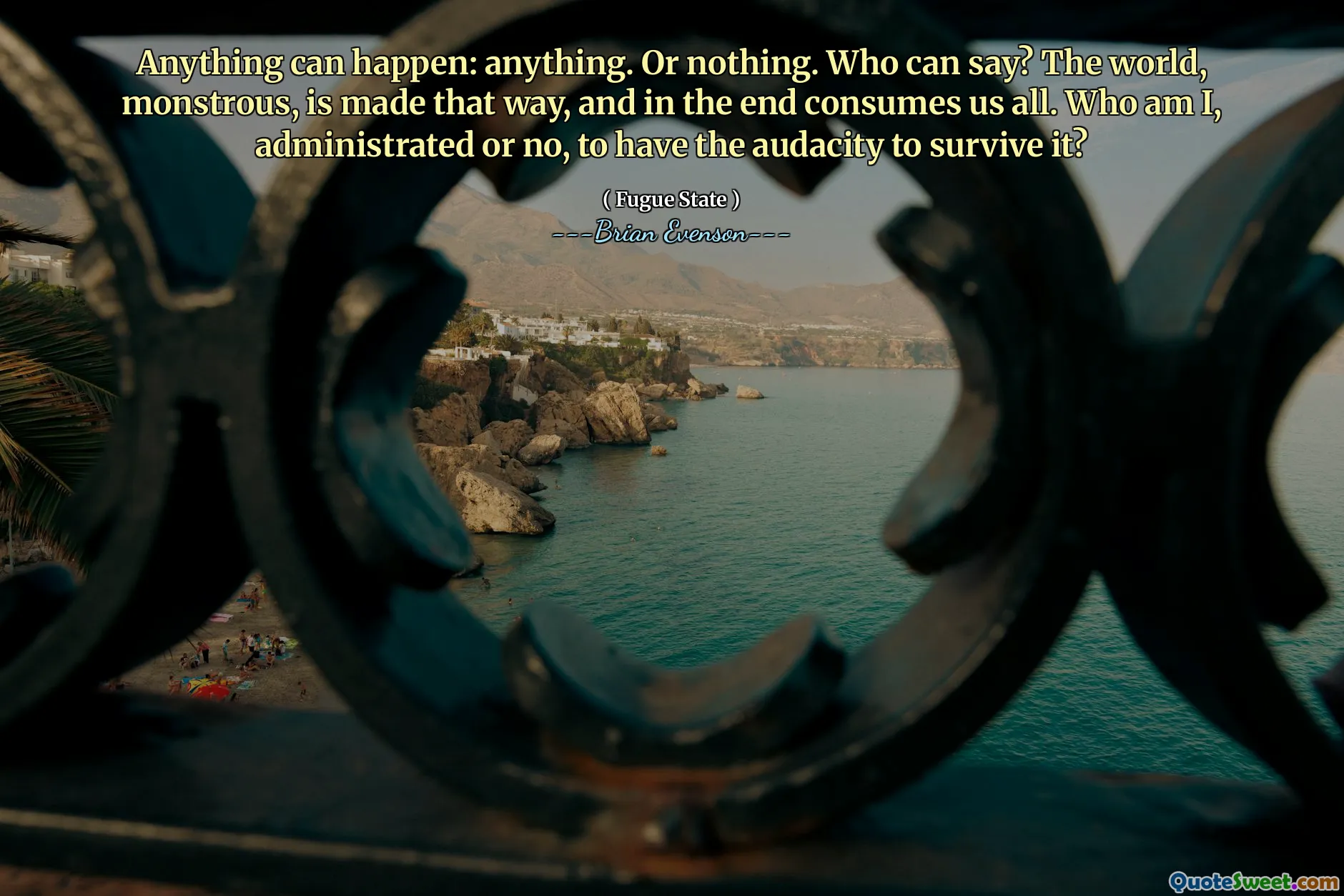
Anything can happen: anything. Or nothing. Who can say? The world, monstrous, is made that way, and in the end consumes us all. Who am I, administrated or no, to have the audacity to survive it?
This quote encapsulates a deep existential unease, a profound wrestling with the unpredictability and inherent monstrosity of the world. It opens with an acknowledgment of the boundless possibilities that life offers — anything can happen, yet paradoxically, perhaps nothing might. This vacillation between extremes reflects the uncertainty that defines much of human existence. The phrase "the world, monstrous, is made that way" suggests that the chaos and darkness are not aberrations but fundamental to the nature of reality. It implies a world indifferent, or even hostile, to human aspirations. The statement culminates in a poignant introspection: given this monstrous, indifferent world that ultimately consumes all beings, who is the speaker — whether "administrated or no" — to assume the audacity to survive it?
Survival itself becomes not just a physical act but an act laden with existential audacity. It questions the legitimacy and perhaps the right of an individual to continue existing in the face of a consuming world. Through this, the quote touches upon themes like the absurdity of life, the fragility of human agency, and the relentless march toward mortality. The use of "administrated" introduces an element of control or regulation, hinting at systems or authorities that might attempt to govern existence, yet the individual's question remains: does such administration grant the right to simply persist?
Ultimately, this passage impresses with its haunting meditation on the human condition. It challenges the reader to confront the monstrous nature of the world and consider the courage—or hubris—required to endure it. This resonates deeply with philosophical inquiry into life's meaning and the tensions between chaos, control, and survival.






